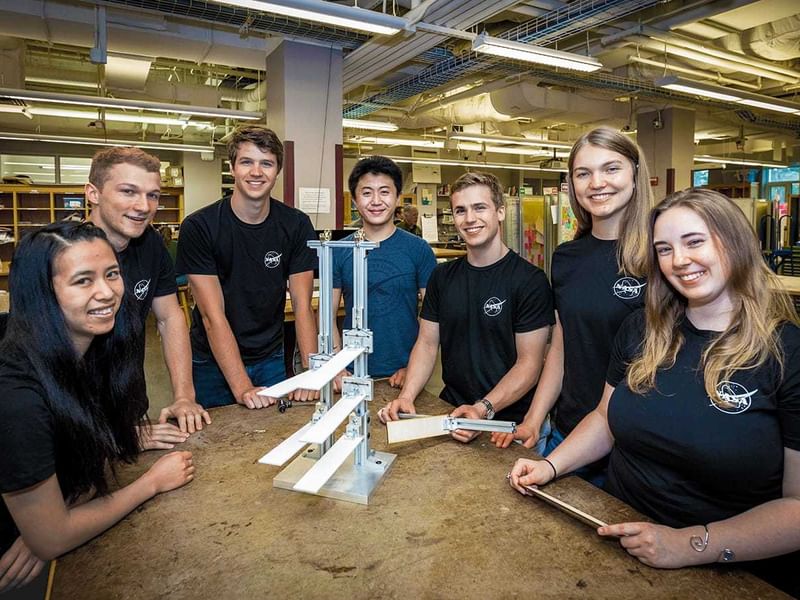- Undergraduate
Bachelor's Degrees
Bachelor of ArtsBachelor of EngineeringDual-Degree ProgramUndergraduate AdmissionsUndergraduate Experience
- Graduate
Graduate Experience
- Research
- Entrepreneurship
- Community
- About
-
Search
Engineering a Better World
At both the graduate and undergraduate level, our collaborative, project-based approach to education and research provides the perfect environment for design thinking to thrive. Our students and faculty collaborate across disciplines to solve real problems that improve the lives of people around the world—from creating sustainable energy solutions for indigenous people in Greenland to developing medical imaging devices to diagnose and treat disease.
Design Initiative at Dartmouth
The Design Initiative at Dartmouth (DIAD) is building interdepartmental collaborations to bring more design tools and mindsets to all corners of campus. From new courses and collaborative programs, to interdisciplinary research efforts and off-campus projects, DIAD is developing a system for human-centered design creativity accessible to everyone.
Human-Centered Design Minor
Designing new products, technology, and systems requires understanding and empathy for the people they impact most. For Dartmouth undergraduates looking to transform their approach to problem-solving, the Human-Centered Design minor is an interdisciplinary program focused on the process of innovation and integrates the human perspective at every step to develop products, tools, and systems to effect positive change.

Cook Engineering Design Center
Dartmouth’s Cook Engineering Design Center (CEDC) connects industry sponsors to advanced engineering students enrolled in the ENGS 89/90 engineering capstone to help design solutions to real-world challenges. In recent years, students have designed low-sensory pods for special needs children for the Children's Hospital at Dartmouth-Hitchcock, a greenhouse on Mars capable of growing food to sustain a small crew of astronauts for the NASA Big Ideas Challenge, and the Mobile Virtual Player to simulate tackling to reduce injuries and concussions.
Courses with Design Emphasis
While design is infused throughout our curriculum, numerous undergraduate and graduate courses have intentional emphasis on engineering design or on design thinking.
- ENGS 2: Integrated Design: Engineering, Architecture, and Building Technology
- ENGS 12: Design Thinking
- ENGS 15: Senior Design Challenge
- ENGS 21: Introduction to Engineering
- ENGS 44: Sustainable Design
- ENGS 75: Product Design
- ENGS 89: Engineering Design Methodology and Project Initiation
- ENGS 90: Engineering Design Methodology and Project Completion
- ENGS 146: Computer-Aided Mechanical Engineering Design
- ENGG 176: Design for Manufacturing
